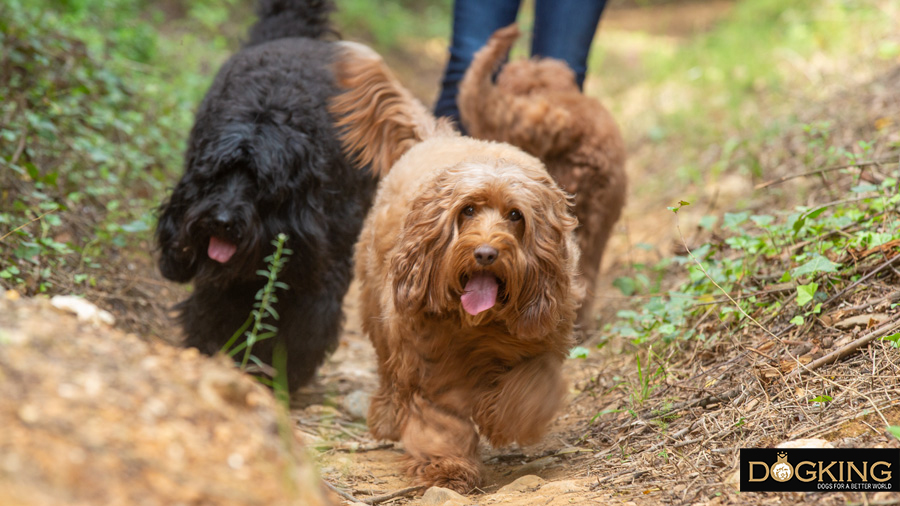Why your dog needs to go for a walk even if he has a huge garden
Lack of stimulation can lead to behavioural problems

YOUR DOG NEEDS SOMETHING MORE
Reading time about 12 minutes
If you think that your dog doesn't need walks in the street because it lives in a house with a garden, you are wrong. It is the equivalent of what you do, it isn't enough for you to have a garden to stop going out, environmental enrichment is necessary to ensure animal welfare. In addition, dogs are social animals that are eager to explore their environment and interact with other dogs and people. We explain here why you should take your dog for a walk even if you have a garden.
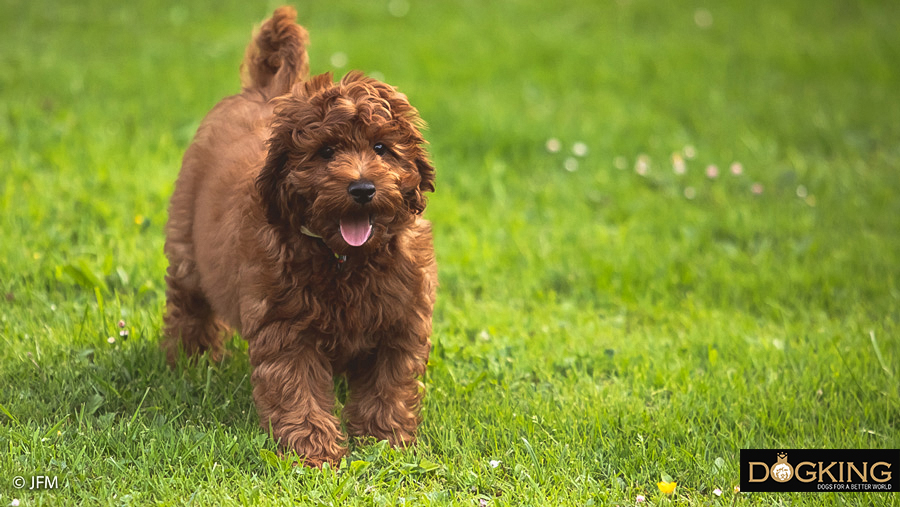
Table of contents
1- Why do I have to walk my dog if I have a garden?
2- What problems may my dog have if I don't walk it?
3- What should walks with my dog be like?
Why do I have to walk my dog if I have a garden?
A very common mistake we make is to think that, for dogs, going for a walk is a purely physiological matter, that is, that they only need it to relieve themselves. That is why we can make the mistake of believing that having a large garden or land at home is an excuse for not taking our dog for a walk.
But the truth is that, for our furry companions, walking is an extremely necessary activity, beyond the fact that it is the time when they take the opportunity to relieve themselves. During their outings, they explore the world, socialize with other people and animals, and learn to deal with all kinds of stimuli, developing a healthy response to them. A dog that goes for a walk with its owner on a regular basis is a balanced and happy puppy.
-
Socialize with other dogs
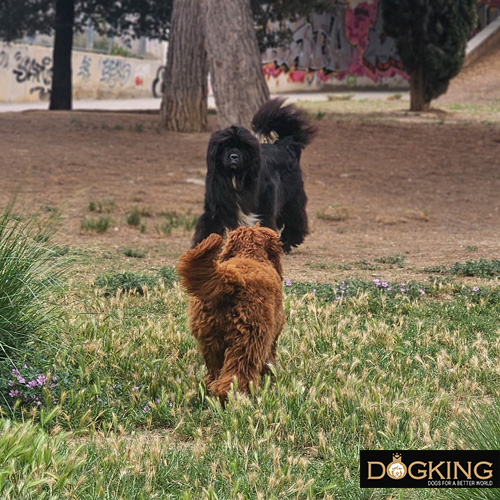 Dogs are pack animals that don't cope well with loneliness. They greatly enjoy the company of their owners but also of other animals. If you take your dog for a walk, it will be able to sniff and play with other dogs, watch a kitten running across the street and, in short, become familiar with all the people around it. Even if you consider your dog is shy and doesn't usually approach other dogs, believe us when we tell you that it needs this socialization to learn to manage the presence of other animals.
Dogs are pack animals that don't cope well with loneliness. They greatly enjoy the company of their owners but also of other animals. If you take your dog for a walk, it will be able to sniff and play with other dogs, watch a kitten running across the street and, in short, become familiar with all the people around it. Even if you consider your dog is shy and doesn't usually approach other dogs, believe us when we tell you that it needs this socialization to learn to manage the presence of other animals.
-
Explore the environment
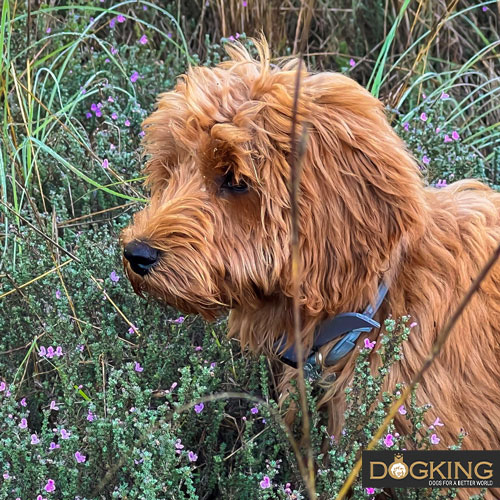 As you know, dogs are great hounds. Their sense of smell is the tool they use to discover the world. A dog that lives in a garden and doesn't leave the house will only have access to limited stimuli. Always the same ground, the same plants, the same landscape, the same people... This may lead to boredom, anxiety and depression. However, by going out for a walk it will be able to encounter new aromas and live different experiences that will make it feel much more complete and fulfilled.
As you know, dogs are great hounds. Their sense of smell is the tool they use to discover the world. A dog that lives in a garden and doesn't leave the house will only have access to limited stimuli. Always the same ground, the same plants, the same landscape, the same people... This may lead to boredom, anxiety and depression. However, by going out for a walk it will be able to encounter new aromas and live different experiences that will make it feel much more complete and fulfilled.
Sniffing also stimulates your dog's mind enormously, as its olfactory bulb (the neuronal structure responsible for interpreting smell) is 40 times bigger in dogs than in humans, so it is really stimulating for its mind to be able to make use of its sense of smell to discover new smells and traces.
The animal will get more tired: think that a dog does between 30-40 RPM when it runs, while sniffing does between 150-180 RPM. If until now you thought that your dog only needed to run to get tired, remember that sniffing may tire the animal 5 times more at other levels.
-
Get used to stimuli
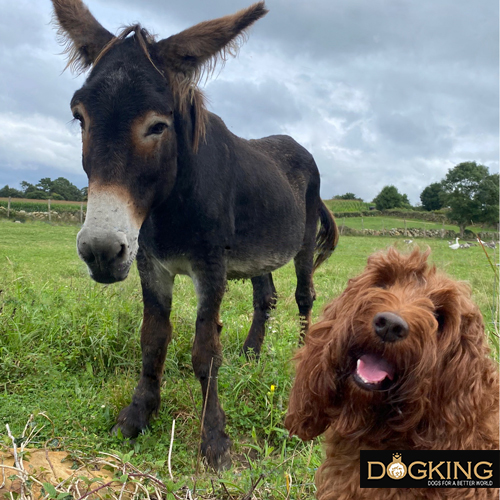 You may have other animals, plants, insects, toys or whatever in your garden, but nothing compares to the amount of stimuli that a dog may receive during a walk down the street. Unexpected noises, a wide variety of smells, people of all shapes and sizes, bicycles whizzing by… Going out into the street and facing all these situations allows our dog to develop coping and normalization strategies. In this way, it will behave in a balanced and calm manner in other situations in its life that are out of the routine: moving house, going to the vet's, living with children, etc.
You may have other animals, plants, insects, toys or whatever in your garden, but nothing compares to the amount of stimuli that a dog may receive during a walk down the street. Unexpected noises, a wide variety of smells, people of all shapes and sizes, bicycles whizzing by… Going out into the street and facing all these situations allows our dog to develop coping and normalization strategies. In this way, it will behave in a balanced and calm manner in other situations in its life that are out of the routine: moving house, going to the vet's, living with children, etc.
-
Socialize with other people
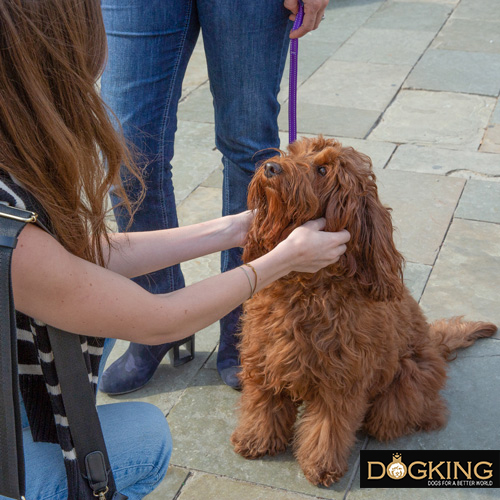 A dog that lives permanently isolated in a garden, even a large one, isn't used to dealing with people other than its owners. This can make it a standoffish, elusive and even aggressive animal, which may lead to many problems if we receive visitors. During walks, however, dogs can watch the comings and goings of many different people, getting used to their movements, smells, and shapes. As with the previous point, this is especially important during the puppy's socialization stage.
A dog that lives permanently isolated in a garden, even a large one, isn't used to dealing with people other than its owners. This can make it a standoffish, elusive and even aggressive animal, which may lead to many problems if we receive visitors. During walks, however, dogs can watch the comings and goings of many different people, getting used to their movements, smells, and shapes. As with the previous point, this is especially important during the puppy's socialization stage.
-
Physical activity
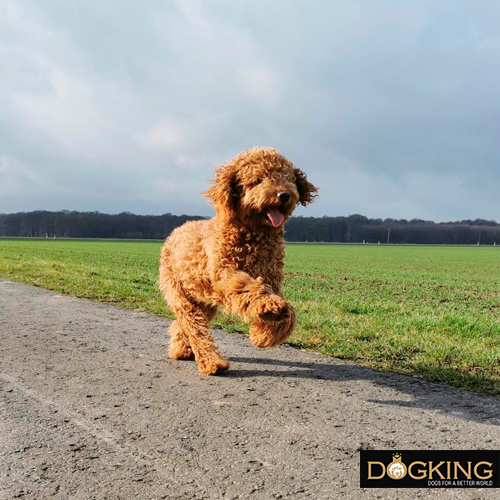 It doesn't matter if your dog has plenty of space on your property to run around and have fun. As a social animal, it needs company to enjoy these games. If your dog spends hours alone in the garden, don't expect it to play or exercise on its own. Taking the animal out for a walk will give it much more complete exercise, as your dog will have your company and plenty of fun stimuli for it to enjoy.
It doesn't matter if your dog has plenty of space on your property to run around and have fun. As a social animal, it needs company to enjoy these games. If your dog spends hours alone in the garden, don't expect it to play or exercise on its own. Taking the animal out for a walk will give it much more complete exercise, as your dog will have your company and plenty of fun stimuli for it to enjoy.
What problems may my dog have if I don't walk it?
- Stress and anxiety. If your dog isn't stimulated, it can become bored, but also nervous and restless. This can lead to behavioural problems such as biting, breaking things... It is important to keep in mind that this is the part of the anxiety/stress that affects us, but our furry friend is suffering emotionally and physiologically from the effects of this state of mind.
- Isolation. By living in such an unenriching environment, your dog may become antisocial, rejecting the presence of other people and dogs. Undoubtedly, this is contrary to a dog's nature, which is a sociable animal that enjoys socializing.
- Physical problems. When a dog feels bored and cognitively unstimulated, it is logical that it becomes sedentary. This could lead to obesity and joint problems, among other pathologies.
- Obsessive compulsive canine disorder. This behavioural disorder is a very serious problem that triggers repetitive behaviors in our dog, such as continuous barking, compulsive digging of holes, excessive licking or scratching, etc.
- Cognitive-emotional disorders and behavioural problems. These disorders may be associated or consequent of lesser and greater severity, negative both for the well-being of the animal and the quality of living at home.
What should walks with my dog be like?
As we have seen, going for a walk is a vital aspect of your dog's life. It isn't only a question of physical health, but also of mental health. For our dog to feel complete, relaxed and happy, we need to go for walks with it. Not only that, but it is advisable to take it to as many different places as possible: to the beach, to the city (if you live in the country) and to the country (if you live in the city), to crowded places, to areas with traffic... The more accustomed our dog is to all kinds of environments, the better its behaviour will be and the more confident it will feel in all areas of its life and in all situations that may come its way.
Although there are different needs depending on the breed, a dog needs to walk between 3 and 5 times a day, alternating short walks with at least one longer walk (approximately 1 hour). On these walks, you should allow it to relax by sniffing at its own pace, without pulling it, letting it be what it is, a social animal who enjoys discovering the world around it.
In addition, walking together will further strengthen the bond between you and your pet. Your dog will feel happy and complete when it feels that it can get to know its environment with you, with your company and support.
Remember that it doesn't matter how big your garden is, or whether you live in a small flat. The size of your home won't affect your dog's happiness if you take it out for enough walks, without excuses, varying the places and always providing the animal with fun and stimulation.
So now you know, grab your dog's leash and get ready to enjoy the great outdoors with your best friend. You have no idea how much the animal will thank you for it!
